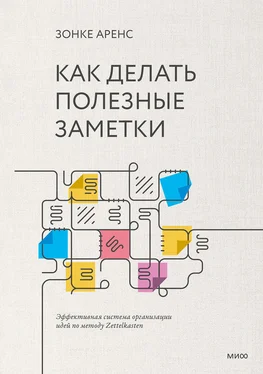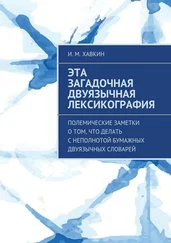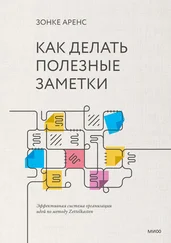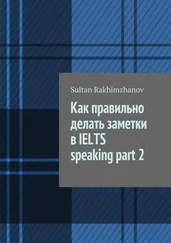20. Burkeman, Oliver. 2013. The Antidote: Happiness for People Who Can’t Stand Positive Thinking. Edinburgh: Canongate Books.
21. Byrne, John H. 2008. Learning and Memory: A Comprehensive Reference, Four-Volume Set. Cambridge, MA: Academic Press.
22. Carey, Benedict. 2014. How We Learn: The Surprising Truth About When, Where, and Why It Happens. New York: Random House.
23. Carter, Evan C., and Michael E. McCullough. 2014. «Publication Bias and the Limited Strength Model of Self-Control: Has the Evidence for Ego Depletion Been Overestimated?» Frontiers in Psychology 5 (July).
24. Clance, Pauline R., and Suzanne A. Imes. 1978. «The Imposter Phenomenon in High Achieving Women: Dynamics and Therapeutic Intervention.» Psychotherapy: Theory, Research & Practice 15 (3): 241–247.
25. Clark, Charles H. 1958. Brainstorming: The Dynamic New Way to Create Successful Ideas. Garden City, NY: Doubleday & Company.
26. Cowan, N. 2001. «The Magical Number 4 in Short-Term Memory: A Reconsideration of Mental Storage Capacity.» The Behavioral and Brain Sciences 24 (1): 87–114.
27. Csikszentmihalyi, Mihaly. 1975. Beyond Boredom and Anxiety. San Francisco: Jossey-Bass.
28. Currey, Mason. 2013. Daily Rituals: How Great Minds Make Time, Find Inspiration, and Get to Work. Pan Macmillan.
29. Darwin, Charles. 1958. The Autobiography of Charles Darwin, 1809–1882: With Original Omissions Restored. Collins.
30. Dean, Jeremy. 2013. Making Habits, Breaking Habits: Why We Do Things, Why We Don’t, and How to Make Any Change Stick. Boston, MA: Da Capo Press.
31. De Bono, Edward. 1998. Simplicity. London; New York: Viking.
32. DePasque, Samantha, and Elizabeth Tricomi. 2015. «Effects of Intrinsic Motivation on Feedback Processing During Learning.» NeuroImage 119 (October): 175–186.
33. Добрынин, Н.Ф. Основные вопросы психологии внимания // Психологическая наука в СССР. М.: Издательство Академии педагогических наук РСФСР, 1960.
34. Doyle, Terry. 2008. Helping Students Learn in a Learner-Centered Environment: A Guide to Facilitating Learning in Higher Education. Sterling, Virginia: Stylus Publishing.
35. Doyle, Terry, and Todd Zakrajsek. 2013. The New Science of Learning: How to Learn in Harmony With Your Brain. Sterling, Virginia: Stylus Publishing.
36. Duckworth, Angela L., and Martin E. P. Seligman. 2005. “Self-Discipline Outdoes IQ in Predicting Academic Performance of Adolescents”. Psychological Science 16 (12): 939–944.
37. Dunlosky, John, Katherine A. Rawson, Elizabeth J. Marsh, Mitchell J. Nathan, and Daniel T. Willingham. 2013. «Improving Students’ Learning With Effective Learning Techniques Promising Directions From Cognitive and Education-al Psychology.» Psychological Science in the Public Interest 14 (1): 4–58.
38. Dweck, Carol S. 2006. Mindset: The New Psychology of Success. New York: Random House.
39. Dweck, Carol S. 2013. Self-Theories: Their Role in Motivation, Personality, and Development. New York: Psychology Press.
40. Ebbinghaus, Hermann. (1885). Über das Gedächtnis: Untersuchungen zur experimentellen Psychologie. Berlin: Duncker & Humblot.
41. Engber, Daniel, and Christina Cauterucci. 2016. «Everything Is Crumbling.» Slate, March 6.
42. Ericsson, K. Anders, Ralf T. Krampe, and Clemens Tesch-Römer. 1993. «The Role of Deliberate Practice in the Acquisition of Expert Performance.» Psychological Review 100 (3): 363–406.
43. Fehrman, Craig. 2011. «The Incredible Shrinking Sound Bite.» Boston.com, January 2.
44. Feynman, Richard P. 1963. «The Problem of Teaching Physics in Latin America.» http://calteches.library.caltech.edu/46/2/LatinAmerica.htm.
45. Feynman, Richard P. 1985. «Surely You’re Joking, Mr. Feynman!»: Adventures of a Curious Character. New York: W.W. Norton.
46. Fishbach, Ayelet, Tal Eyal, and Stacey R. Finkelstein. 2010. How Positive and Negative Feedback Motivate Goal Pursuit: Feedback Motivates Goal Pursuit. Social and Personality Psychology Compass, 4(8), 517–530.
47. Fleck, Ludwik. 1979. The Genesis and Development of a Scientific Fact, edited by T.J. Trenn and R.K. Merton, foreword by Thomas Kuhn. Chicago: University of Chicago Press.
48. Flyvbjerg, Bent. 2001. Making social science matter: Why Social Inquiry Fails and How It Can Succeed Again. Oxford, UK; New York: Cambridge University Press.
49. Franklin, Benjamin. 1840. Memoirs of Benjamin Franklin. Edited by William Duane. McCarty & Davis.
50. Fritzsche, Barbara A., Beth Rapp Young, and Kara C. Hickson. 2003. «Individual Differences in Academic Procrastination Tendency and Writing Success». Personality and Individual Differences 35 (7): 1549–1557.
51. Гадамер, Х.-Г. Истина и метод. М.: Прогресс, 1988.
52. Gawande, Atul. 2002. Complications: A Surgeon’s Notes on an Imperfect Science. New York: Metropolitan Books.
53. Гаванде, Атул. Чек-лист. Как избежать глупых ошибок, ведущих к фатальным последствиям. М.: Альпина Паблишер, 2014.
54. Getzels, Jacob Warren, and Mihaly Csikszentmihalyi. 1976. The Creative Vision: A Longitudinal Study of Problem Finding in Art. New York: Wiley.
55. Gigerenzer, Gerd. 2008. Gut Feelings: The Intelligence of the Unconscious. New York: Viking Penguin.
56. Гилберт, Дэниел. Спотыкаясь о счастье. М.: Альпина Паблишер, 2015.
57. Glynn, Shawn M., Gita Taasoobshirazi, and Peggy Brickman. 2009. «Science Motivation Questionnaire: Construct Validation with Nonscience Majors». Journal of Research in Science Teaching 46 (2): 127–146.
58. Goldstone, Robert L., and Uri Wilensky. 2008. «Promoting Transfer by Grounding Complex Systems Principles.» Journal of the Learning Sciences 17 (4): 465–516.
59. Govorun, Olesya, and B. Keith Payne. 2006. ‘Ego — Depletion and Prejudice: Separating Automatic and Controlled Components’. Social Cognition 24 (2): 111–136.
60. Granovetter, Mark S. 1973. «The Strength of Weak Ties.» American Journal of Sociology 78 (6): 1360–1380.
61. Gunel, Murat, Brian Hand, and Vaughan Prain. 2007. «Writing for Learning in Science: A Secondary Analysis of Six Studies.» International Journal of Science and Mathematics Education 5 (4): 615–637.
62. Hagen, Wolfgang. 1997. Die Realität der Massenmedien. Radio Bremen im Gespräch mit Niklas Luhmann. http://www.whagen.de/gespraeche/LuhmannMassenmedien.htm.
63. Hallin, Daniel C. 1994. We Keep America on Top of the World: Television Journalism and the Public Sphere. London; New York: Routledge.
64. Hearn, Marsha Davis, Tom Baranowski, Janice Baranowski, Colleen Doyle, Matthew Smith, Lillian S. Lin, and Ken Resnicow. 1998. «Environmental Influences on Dietary Behavior among Children: Availability and Accessibility of Fruits and Vegetables Enable Consumption». Journal of Health Education 29 (1): 26–32.
65. Hollier, Denis. 2005. «Notes (on the Index Card).» October 112 (April): 35–44.
66. Inzlicht, M., L. McKay, and J. Aronson. 2006. «Stigma as Ego Depletion: How Being the Target of Prejudice Affects Self-Control». Psychological Science 17 (3): 262–269.
67. Inzlicht, Michael, and Malte Friese. 2019. «The Past, Present, and Future of Ego Depletion.» Social Psychology 50 (5–6): 370–378.
68. James, William. 1890. The Principles of Psychology. New York: H. Holt and Company.
69. Jang, Yoonhee, John T. Wixted, Diane Pecher, René Zeelenberg, and David E. Huber. 2012. «Decomposing the Interaction Between Retention Interval and Study/Test Practice: The Role of Retrievability.» The Quarterly Journal of Experimental Psychology 65 (5): 962–975.
Читать дальше
Конец ознакомительного отрывка
Купить книгу





![Наталья Краснова - [НЕ]ВЕРНОСТЬ. Что делать, когда не знаешь, что делать](/books/452212/natalya-krasnova-ne-vernost-chto-delat-kogda-n-thumb.webp)






